
The Church are an Australian alternative rock band formed in Sydney in 1980. Initially associated with new wave, neo-psychedelia, and indie rock, their music later came to feature slower tempos and surreal soundscapes reminiscent of dream pop and post-rock. Glenn A. Baker has written that "From the release of the 'She Never Said' single in November 1980, this unique Sydney-originated entity has purveyed a distinctive, ethereal, psychedelic-tinged sound which has alternatively found favour and disfavour in Australia." The Los Angeles Times has described the band's music as "dense, shimmering, exquisite guitar pop".

Peter Koppes is a guitarist, best known as a founding and almost-continuous member of Australian independent rock band The Church. He is a multi-instrumentalist, also playing mandolin, drums, piano, and harmonica. He has also released various solo albums and various recordings with his group The Well (1989-1995.) Koppes lives on the Sunshine Coast in Queensland where he also produces albums and conducts seasonal 'song writing' and 'performance for demo recording' short courses at Nambour TAFE, as well as offering private tuition in guitar, drums and song writing. His daughters are Tatiana 'O' Koppes and Neige Koppes who have their own band, Rain Party.
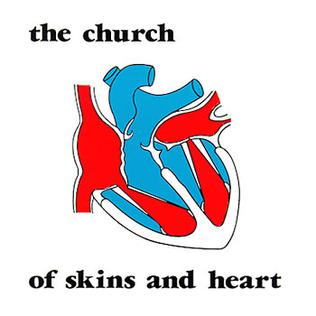
Of Skins and Heart is the debut album by the Australian psychedelic rock band The Church, released in April 1981 by EMI Parlophone. It peaked at No. 22 in the Australian Kent Music Report Albums Chart.

The Blurred Crusade is the second album by the Australian alternative rock band The Church, released in March 1982 by EMI Parlophone. Moving away from the new wave leanings of their debut, it was stylistically more complex and "a smoother, fuller release". "With its mystical lyrics the second album ... brought the group's own style more into focus". The album peaked at No. 10 on the Australian Kent Music Report Albums Chart and "Almost With You" reached No. 21 on the related Singles Chart.
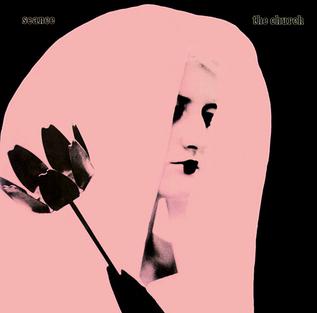
Seance is the third album by the Australian psychedelic rock band The Church, released in 1983. More atmospheric and brooding than its predecessor The Blurred Crusade's jangling psychedelia and upbeat rock, it shows a greater use of keyboards, with the guitars taking largely textural roles on many songs. While numerous tracks have become fan favorites over the years, the album saw considerably less success in Australia than previous releases and had limited exposure internationally. Apart from the psychedelic noise experiment "Travel By Thought", which prefigures the band's extended improvised tracks of the 1990s and beyond, all songs were written solely by Steve Kilbey.

Heyday is the fourth album by the Australian alternative rock band The Church, released in November 1985. The album marked the first occasion when group compositions dominated one of the band's releases. Steve Kilbey has said: "The demo situation was getting to us - me writing the songs on my eight-track and bringing them along to the band. It sounded too stiff. We'd reached this new energy level on stage which by far superseded anything we'd ever recorded, so we knew the only way to get sounding like that was for the whole band to write together."

Gold Afternoon Fix is the sixth album by the Australian alternative rock band the Church, released in February 1990. It was their second album for Arista Records in the US and was expected to capitalise and build on the success of 1988's Starfish. The album saw considerable promotion upon its release, but despite moderate success in the US, with the single "Metropolis" reaching the top of the Modern Rock Tracks chart, the release failed to deliver mass commercial appeal.

Priest=Aura is the eighth album by the Australian alternative rock band The Church, released in March 1992. It peaked at No. 25 on the ARIA Albums Chart.
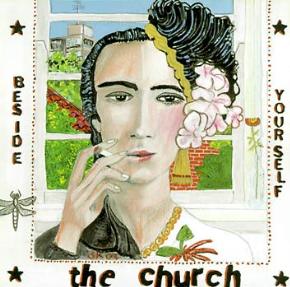
Beside Yourself is the seventeenth album by the Australian psychedelic rock band The Church, released in October 2004. It consists of material recorded during the sessions for their 2003 album Forget Yourself and was only released in Australia, with a limited pressing of 500 copies. Some of the tracks had already been made available in the United States on the iTunes Exclusive Tracks EP and on the bonus disc given away with the U.S. release of Forget Yourself.
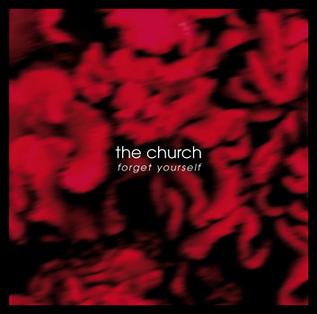
Forget Yourself is the fifteenth album by the Australian alternative rock band The Church, released in October 2003. It was recorded at drummer Tim Powles' Spacejunk studios in Australia and features many straight-to-tape recordings with few overdubs.
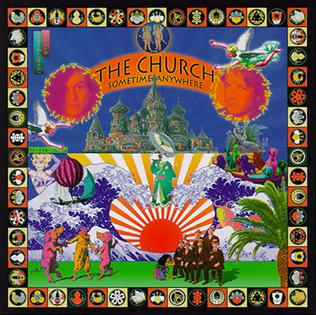
Sometime Anywhere is the ninth album by the Australian alternative rock band The Church, released in May 1994.

Uninvited, Like the Clouds is the 20th album by the Australian alternative rock band The Church. It was released in Australia on 20 March 2006 and internationally on 17 April.

Back With Two Beasts is the nineteenth album by the Australian psychedelic rock band The Church, released in November 2005. The material was recorded during the Uninvited, Like the Clouds sessions but released first, as a teaser for that album, and was originally only available from the band's website or at their gigs. It was re-released by Unorthodox Records in 2009. The title is a play on the euphemism for sexual intercourse, "the beast with two backs", to which both of the track titles on the band's previous self-released album, Jammed, also referred.
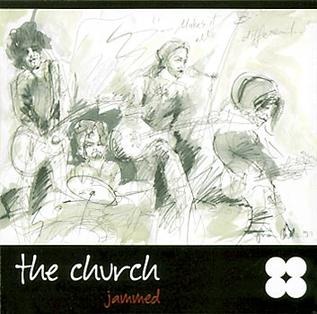
Jammed is the sixteenth album by the Australian alternative rock band The Church, released in August 2004. It was their second album of entirely improvised material, following the Bastard Universe bonus disc from Hologram of Baal and consists of only two extremely long tracks. It was only available from the band's website or at their gigs and is now out of print.
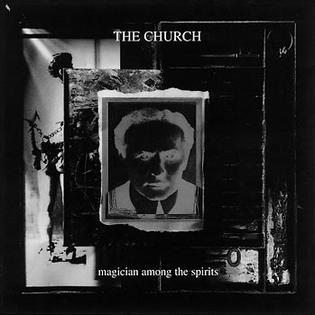
Magician Among the Spirits is the tenth album by the Australian alternative rock band The Church, released in August 1996. The album title was inspired by a book written by Harry Houdini and C. M. Eddy, Jr. (uncredited) in 1924, in which the famed magician discussed his investigations of spirit mediums. A photographic negative of Houdini is incorporated as the centrepiece of the album artwork. The album was reissued with a revised track listing as Magician Among the Spirits Plus Some in 1999.

A Box of Birds is the twelfth album by the Australian psychedelic rock band The Church, released in September 1999. It consists of cover versions of tracks by artists who were influential on the group's music.
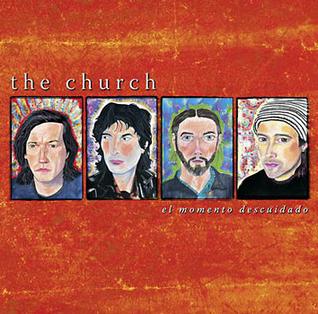
El Momento Descuidado is the eighteenth album by the Australian psychedelic rock band The Church, released in November 2004.
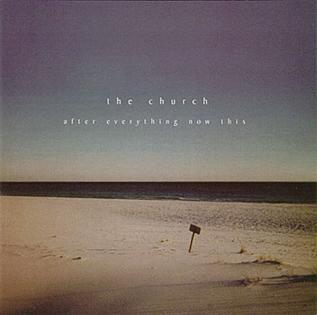
After Everything Now This is the thirteenth album by the Australian alternative rock band The Church, released in early 2002. It was produced by group member Tim Powles and the rest of the band.

Pharmakoi/Distance-Crunching Honchos with Echo Units is the only album by the Australian alternative rock band The Refo:mation, released in 1997.

Untitled #23 is the 23rd album by the Australian alternative rock band The Church, released in March 2009. It was their 23rd Australian album-length collection of original studio recordings, counting the four outtakes albums, the covers album A Box of Birds and the acoustic albums El Momento Descuidado & El Momento Siguiente.





















